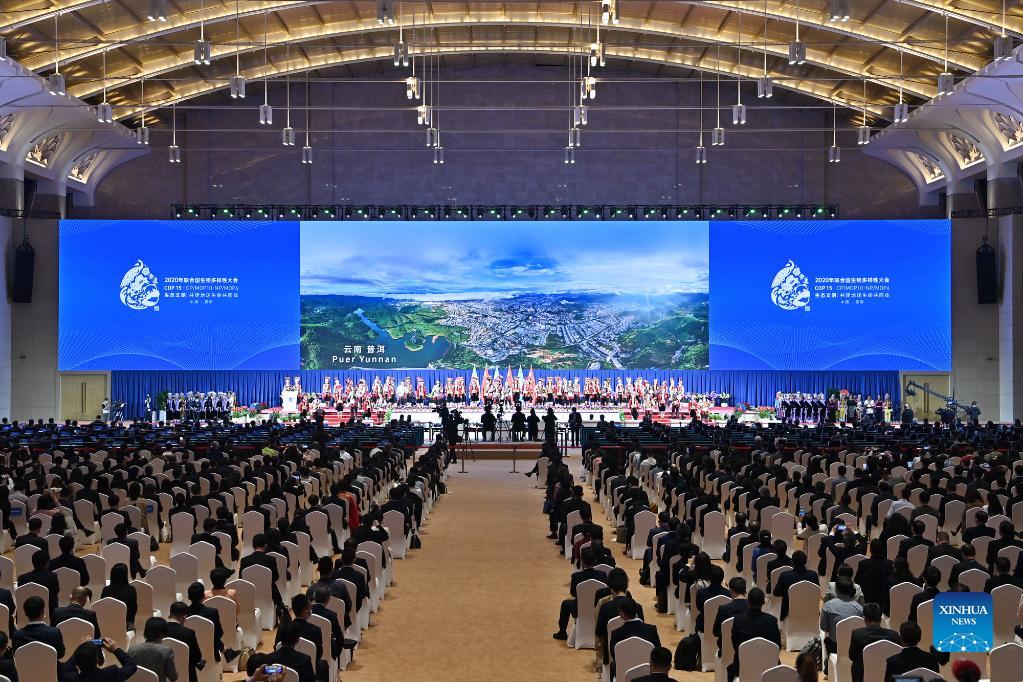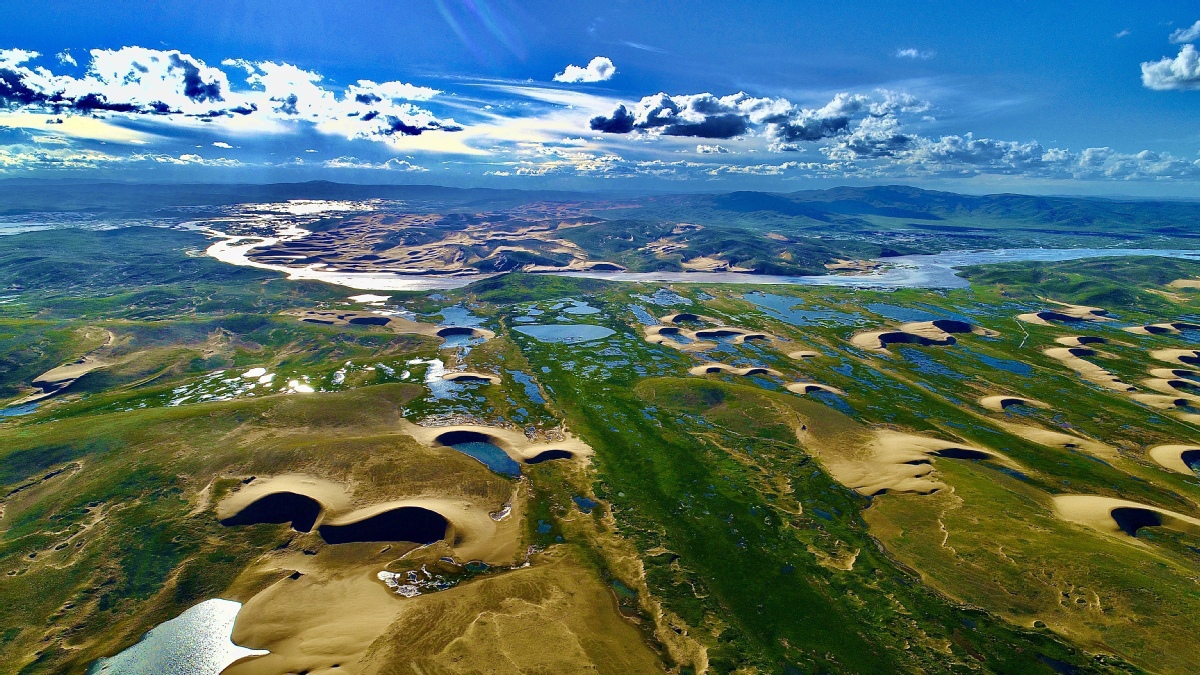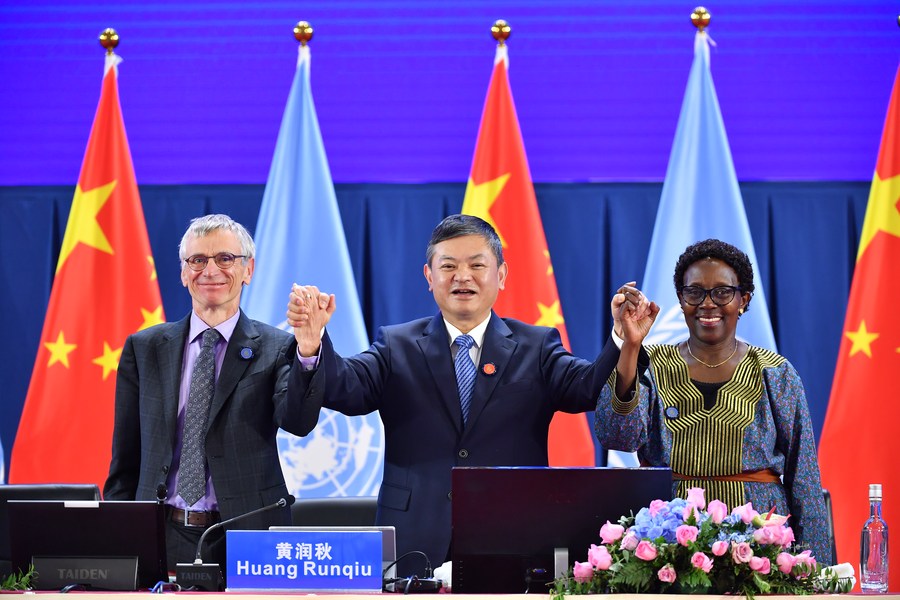China Hosts COP15 and Showcases Its Biodiversity Achievements

Beijing has accelerated projects to secure its current biodiversity, placing more emphasis on the ecosystem that improve conditions for animals and plants species, as well as their genetic resources.
When reading the newspapers or watching TV news, we are frequently bombarded with tales of terrible tidings, such as learning about the eruption of wars, civil wars, droughts, pandemics, social strife, shocking crimes, natural, as well as human-made disasters. We have come to a point when our anticipation of bad news from the media becomes a typical though process. Surely, a bad moon keeps rising on the horizon and brighter days of sunshine are no more if we only paid attention to news reports.
Nonetheless, there’s some good news from China, which could have a lasting and positive impact on our world. Last week, the city of Kunming, the capital of southwestern China’s Yunnan Province, hosted a five-day international summit organized by the United Nations Environmental Program. Participants, including the Chinese government, are pledging greater support to protect endangered species of animals and plants to march ahead towards more ambitious goals to ensure the safety and survival of the rich biodiversity across the globe.
This week, we have witnessed the 15th meeting on the Conference of the Parties (COP15) to inject new momentum for the UN Convention on Biological Diversity. The global conference, which held both online and offline events, goes by the theme, “Ecological Civilization: Building a Shared Future for All Life on Earth.” It’s a landmark conference – the first of its kind convened by the UN to highlight Chinese elements of an ecological civilization that was introduced by ancient Chinese philosophical principles.
The Chinese government and many other national and regional sovereign governments have drawn up and agreed to endorse a worldwide strategy to protect biodiversity and conservation from the years 2020 to 2030.

China takes leading role
China has long been criticized for struggling with pollution problems, since the government supported nationwide industrialization, urbanization and modernization drives ever since the Reform and Opening Up were introduced by the late Chinese leader Deng Xiaoping in December 1978. Beijing back then was eager to boost the domestic economy but the boom times for the manufacturing sector in many Chinese cities resulted in much higher pollution levels while large tracts of land were transformed from idyllic natural scenery to ‘concrete jungles,’ (urban zones). The nation’s biodiversity was placed in grave harm during the rapid development stage of China’s economy.
Nonetheless, the Chinese government and Chinese society have been devoting great efforts to protect the environment when shifting towards the ‘Xiaokang Society’ which is the moderately prosperous society. Chinese President Xi Jinping announced the country had hit its Xiaokang targets, which means the country has a strong middle class with over 400 million in the ranks and with a more vibrant economy, Chinese citizens have shown greater concern for improved living standards and a better environment. More and more Chinese want to do their part to protect biodiversity.
President Xi has led the way by enforcing tougher environmental regulations such as shutting down high-polluting factories in major cities, as well as encouraging the development of renewable and green technologies while creating the right conditions to protect wildlife and plant species in the nation with the UN offering reliable collaboration. Beijing has accelerated projects to secure its current biodiversity, placing more emphasis on the ecosystem that improve conditions for animals and plants species, as well as their genetic resources.
China’s central government is subsidizing more public awareness campaigns, educational programs and conservation projects that will likely inspire future generations to gain employment as national park rangers and other jobs related to the field. Beijing has stepped up by advising all nations and regions to join in protecting biodiversity and everything that it entails.

The next steps ahead
China’s Minister of Ecology and Environment Huang Runqiu announced the Kunming Declaration on Wednesday to adopt high-level proposals agreed to by leaders of governments in attendance at COP15. “The declaration will send a powerful signal, showing the world our determination to solve the problems of biodiversity loss and our stronger actions on the issues discussed at this high-level meeting.” Minister Huang has good reasons to show optimism. He serves as the key official to protect China’s biodiversity and he served as the host of COP15. He selected Kunming as the city to welcome the conference and its participants. Yunnan province covers about 4 percent of China’s land mass and it is home to 72.5 percent of China’s protected animal species and 2,500 unique plant species.
In the post-2020 framework the emphasis on biodiversity protections will be on ‘outcome-oriented’ time-bound aims, according to the Website China Dialogue. The city of Kunming embraces ‘ecological civilization’ and is a major connectivity hub for “Green Belt & Road Initiative.” Minister Huang has offered three proposals for global biodiversity governance: adhering to multilateralism, increasing investments and accelerating transformative changes, according to CGTN. He calls for the entire global community to strengthen their political promotions, dialogue and exchanges, as well as planning the post-2020 goals under a scientific method. The Chinese government intends to broaden channels to fund and provide greater support for biodiversity protections and sustainable development.
We should all place a top priority on biodiversity conservation as citizens of the world and the Chinese are doing their part too. The country has witnessed significant improvements in recent years on protecting endangered species in the country, while Chinese organizations have played crucial roles to improve the breeding patterns of endangered wildlife and to have more natural landscapes for them to migrate around, including the Tibetan antelope that were on the verge of extinction a few decades ago, but now they have multiplied on the Tibetan plateaus.

Chinese protectors
The Chinese take their duties to protect biodiversity very seriously. Human beings are not alone in this world and we need our animal and plant friends around. Beijing has spearheaded many government programs to protect endangered wildlife and plants. The panda bear is a symbol of China’s love for animals in dire need of our protection. The snow leopards in northeast China have also seen their species multiply and they can have more natural land to roam around. Accordingly, the Chinese hold an abiding love for protecting animals and nature.
President Xi explained his thoughts on ‘ecological civilization’ at a national conference on environmentalism in May 2018. Xinhua quoted him as saying:
“The thought is composed of several other key principles, including ensuring harmony between human and nature, regarding a sound ecological environment as the most inclusive benefits to people’s well-being, seeing mountains, rivers, forests, farmlands, lakes, grasslands and deserts as a community of life, protecting the environment through the best institutional arrangements and the strictest rule of law, as well as getting deeply involved in global environmental governance to come up with a worldwide solution for environmental protection and sustainable development.”
The COP15 stands tall as a significant achievement for its ‘Kunming Declaration’ this year. Let’s feel the spirit and keep hope alive for more good news to come.
 Facebook
Facebook
 Twitter
Twitter
 Linkedin
Linkedin
 Google +
Google +



